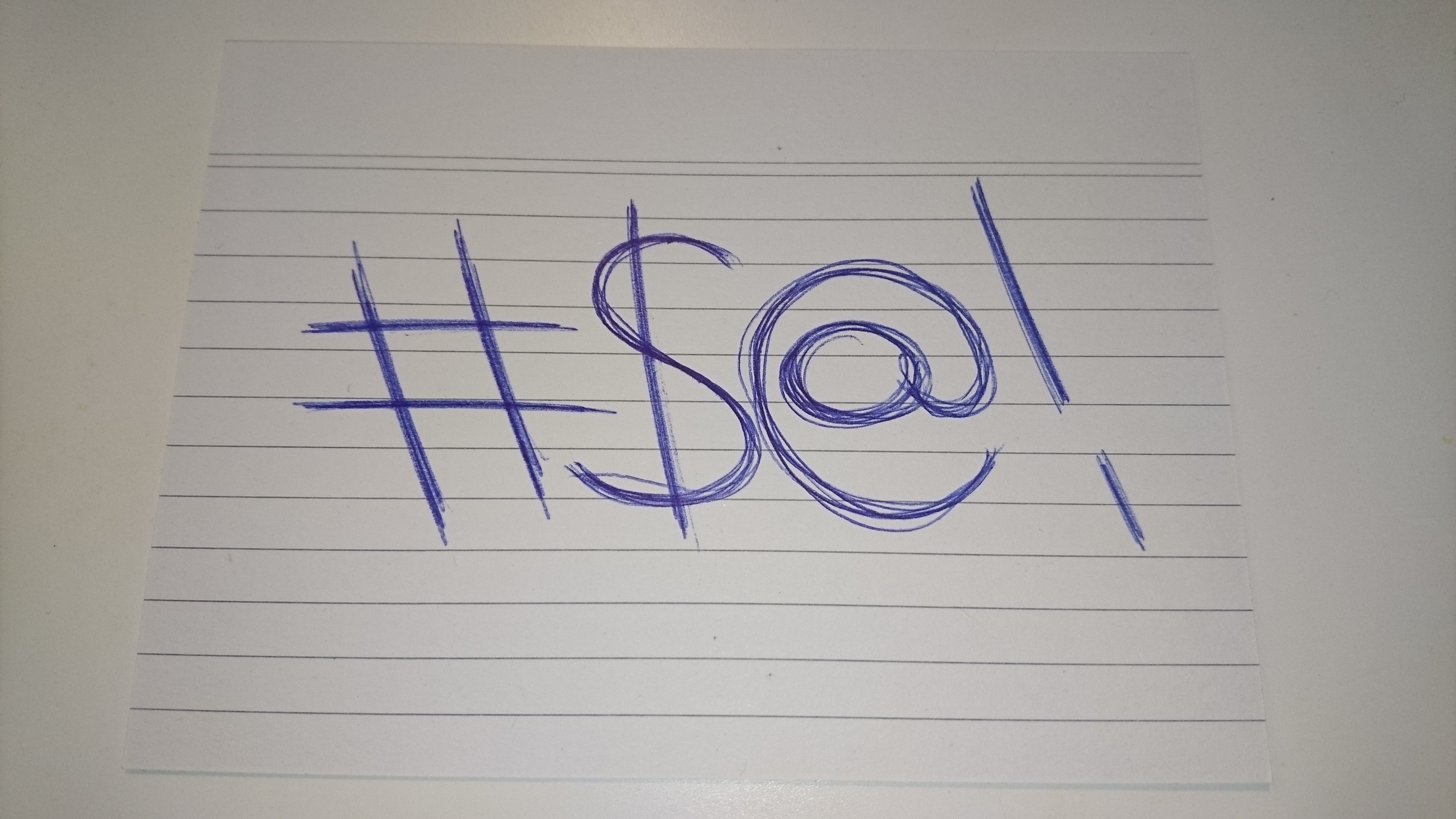Learning curse words in other languages
by Pauline Karl (1999) Gisela-Gymnasium, München/Germany on 2018-01-23

Swearing is something most people do on a regular basis, be it because something bad happened or just out of surprise. It has a great impact on the situation the people around. In some cases curse are taboo and are frowned upon, so it adds a little twist to say a curse in another language. Maybe you don’t want others to think bad of you or you’re in school and the teacher won`t be very pleased if they hear a „bad“ word. By using another language you are save. I can swear in at least five different languages and I only speak two.
But first a bit to the science behind swearing in general. Swear words are most times connected with taboo subjects, these topics are off-limits and aren’t meant to be spoken out loud. George Washington once said: “The foolish and wicked practice of profane cursing and swearing is a vice so mean and low that every person of sense and character detests and despises it.”. He was against swearing of any kind, but even if you are of his opinion nobody can deny that cursing plays a big part in communication.
Context is quite important for swearing. Among friends, you can casually swear, curse and cuss but at school or even at a job interview it is not very wise to do so.
„Liturgical swearing“ meaning using sacred or holy objects for profanity is for most people the pinnacle of impertinence because every good Christian knows "Thou shalt not take the name of the Lord thy God in vain" (Exodus 20:7), which is one of the ten commandments. But for a lot of others, there is no difference in saying „oh my God“ or just „oh no“.
Most profanities come from surprise frustration or anger in these situations its normal to use them. Scientific studies even looked into the impact curses have on dealing with pain. Psychologists claim that it helps with pain relief. "Swearing is such a common response to pain that there has to be an underlying reason why we do it," says psychologist Richard Stephens of Keele University in England, head-researcher of the study. But how this effect of relief is achieved is still unclear. A plethora of reasons might be behind it.
Alas sometimes cursing has a bad influence on reactions, it can easily incite road rage and lead it to brutal violence. Not in all situations, it is recommended to use profanity.
I myself rarely swear in my mother tongue, but I could not tell you why, mostly I use English curses, the ones many of us use. Maybe its because I really like the English language and want to associate myself and be associated with the English culture and language. In a study in the Public Library of Science One, Polish researchers from the University of Warsaw studied why and when we switch between languages. Some feel much more connected to their native language, so they more willing to say things in a different language than their own.
“Those who have contact with bi- or multilinguals often notice that it is easier for the latter group to express certain content in one language, while other content is more willingly conveyed in the other. What does this preference depend on? It has been noticed and proven that it is mostly emotional topics that cause slipping from one language to another. Kim and Starks name this phenomenon `emotion-related language choice` (ERLC) and define it as a language choice made by a bilingual person, either consciously or subconsciously, which is not conditioned by factors such as the environment (e.g. home/school/playground/workplace/pub…), but lies within their own, subjective preferences.”*
Apparently, we are much more inclined to say bad words in another language, because we don’t feel as connected to them and they don’t upset us as much.
“Bilingual Polish students translated texts brimming with expletives from Polish into English and vice versa. In the Polish translations, the swear word equivalents used were weaker than in the source text; in the English translations, they were stronger than in the original. These results corroborate the ERLC theory. However, the effect was only observed for ethnophaulisms, i.e. expletives directed at social groups. It turns out that the main factor triggering the language choice in bilinguals is not necessarily the different emotional power of both languages, but social and cultural norms.”*
Social norms and taboos might be so strong and influential that people tone down their use of profanity in their own language, so bilingual people switch to their second language to be more comfortable in using them.
------------------------------------------------------------
* Read the cited paper entirely in PLoS One under: „Second Language as an Exemptor from Sociocultural Norms. Emotion-Related Language Choice Revisited”





Sahil Bakshi
Gurugram Public School, Gurgaon/India (2005) on 2018-02-02